Uncategorized
-
 Quantum Physics
Quantum PhysicsPhysicists are mostly unconvinced by Microsoft’s new topological quantum chip
Majorana qubits could be error resistant. But after a contentious talk at the Global Physics Summit, scientists aren’t convinced Microsoft has them.
-
 Microbes
MicrobesElite athletes’ poop may hold clues to boosting metabolism
In a small study, mice given fecal transplants from elite cyclists and soccer players had higher levels of glycogen, a key energy source.
By Alex Viveros -
 Physics
PhysicsCalls to restart nuclear weapons tests stir dismay and debate among scientists
Many scientists say “subcritical” experiments and computer simulations make nuclear weapons testing unnecessary.
-
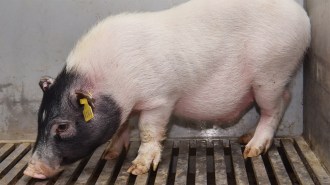 Health & Medicine
Health & MedicineSurgeons transplanted a pig’s liver into a human
A genetically modified mini pig’s liver was able to function in the body of a brain-dead patient throughout a 10-day experiment.
By Meghan Rosen -
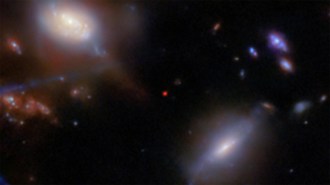 Space
SpaceJWST spots the earliest sign yet of a distant galaxy reshaping its cosmic environs
The galaxy, called JADES-GS-z13-1, marks the earliest sign yet spotted of the era of cosmic reionization at 330 million years after the Big Bang.
-
 Genetics
GeneticsWhat 23andMe’s bankruptcy means for your genetic data
As 23andMe prepares to be sold, Science News spoke with two experts about what’s at stake and whether consumers should delete their genetic data.
-
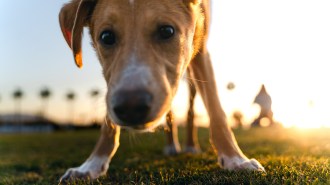 Animals
AnimalsYou might be reading your dog’s moods wrong
A dog's physical cues often take a back seat to environmental ones, skewing humans' perceptions, a small study suggests.
-

Math puzzle: The Lesser Fool
Solve the math puzzle from our April 2025 issue. In honor of April Fools’ Day, we offer the puzzling case of the Lesser Fool.
By Ben Orlin -
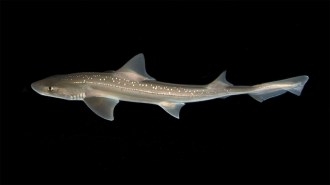 Animals
AnimalsIs that shark ticking? In a first, a shark is recorded making noise
The ocean can be a symphony of fish grunts, hums and growls. Now add tooth-clacking sharks to the score.
By Susan Milius -
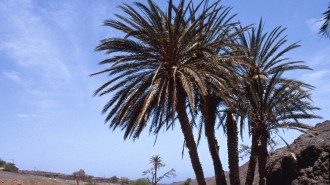 Plants
PlantsA nearly century-old dead date palm tree helped solve an ancestry mystery
The iconic Cape Verde date palm came from commercial trees gone feral and could provide genetic variety to boost the resilience of its tamer relatives.
By Susan Milius -
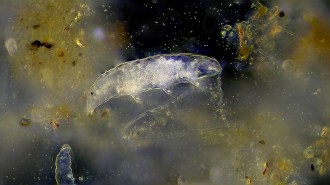 Animals
AnimalsA tardigrade protein helped reduce radiation damage in mice
Mouse cells tweaked to produce the tardigrade protein incurred less DNA damage than unaltered cells — hinting at a new tool for cancer patient care.
-
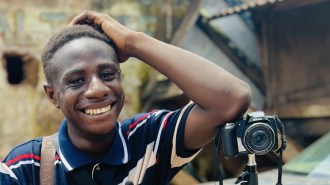 Health & Medicine
Health & MedicineTuberculosis could be eradicated. So why isn’t it?
John Green’s new book, Everything Is Tuberculosis, reveals how social injustice sustains the disease, despite available cures and vaccines.